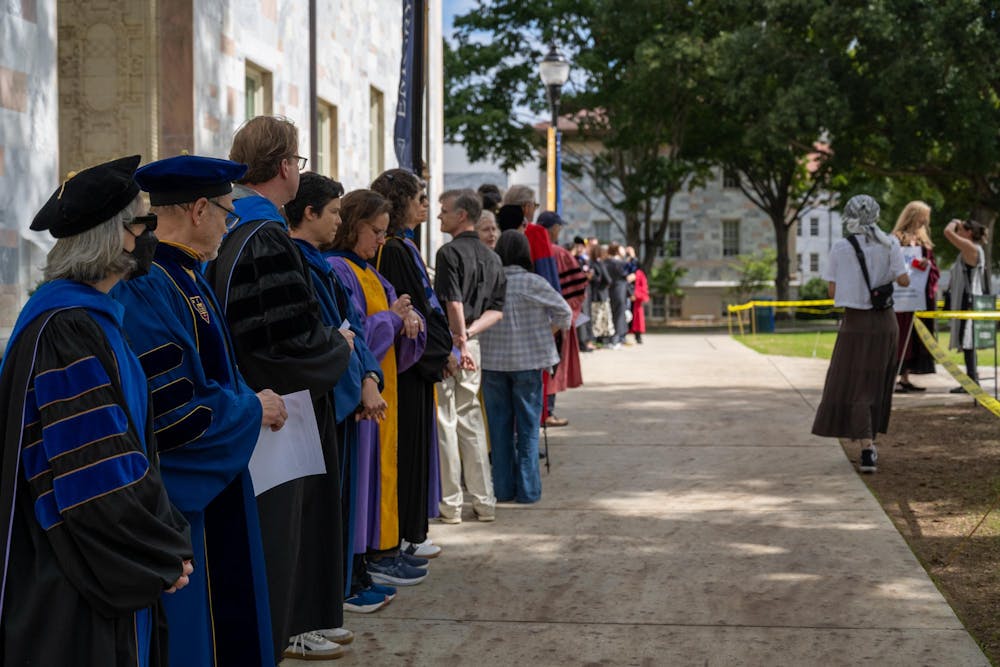More than 60 faculty members gathered on the Emory University Quadrangle on Sept. 18 to participate in a silent vigil in defense of academic freedom and shared governance at Emory.
This vigil comes after University administration created an addendum to the Respect for Open Expression Policy to clarify restrictions on student demonstrations. The University codified the addendum without the review of the University Senate or its Committee for Open Expression. Some faculty members have expressed their disagreement with the administration’s handling of free speech on campus, specifically regarding Emory’s implementation of the addendum.
During the vigil, faculty members, some of whom dressed in academic regalia, stood in front of Convocation Hall. Goodrich C. White Professor Emeritus Richard Doner and Pamela Scully, Samuel Candler Dobbs professor of women’s, gender and sexuality studies and professor of African studies, held a sign that read “Faculty Vigil: In Defense of Academic Freedom and Shared Governance at Emory University.” After all attendees arrived, a procession of faculty walked around the perimeter of the Quad in silence.
History Department Chair and Professor Yanna Yannakakis, who was in attendance, said one of the central issues behind the vigil was Emory administration not consulting faculty when implementing the addendum.
“Faculty are supposed to participate in major decisions that impact the University and our mission,” Yannakakis said.
Scully expressed similar concerns, stating that the University should have engaged faculty in the decision-making process.
“We’re here to assert the importance of faculty to the mission of the University and to insist that the president and Board of Trustees recognize and acknowledge that there are many faculty that are very upset with how Emory is being run at the moment,” Scully said.
In addition to the lack of faculty involvement, Yannakakis also expressed concerns with the content of the addendum, which prohibits encampments. Yannakakis stated that students’ right to protest should not be “impacted by these constraints, which seem to be narrowing constantly.” Women’s, Gender and Sexuality Studies Department Chair and Professor Falguni Sheth added that the restrictions in the addendum infringe on students’ freedom of speech and protest.
However, University President Gregory Fenves previously told The Emory Wheel that the addendum clarified rules that the University has followed in “practice” in the past.
Doner explained that faculty are not “standing up” for a certain political perspective but instead for “shared governance.” Going forward, Doner hopes that the University and Fenves will “encourage a process of engagement” among students and faculty on protests and demonstrations.
“On issues such as Cop City, on issues such as the Gaza war and the Middle East conflict, there are myriad, many diverse perspectives within the faculty,” Doner said. “We don't agree with each other, but what we should agree on is the need to be consulted.”






